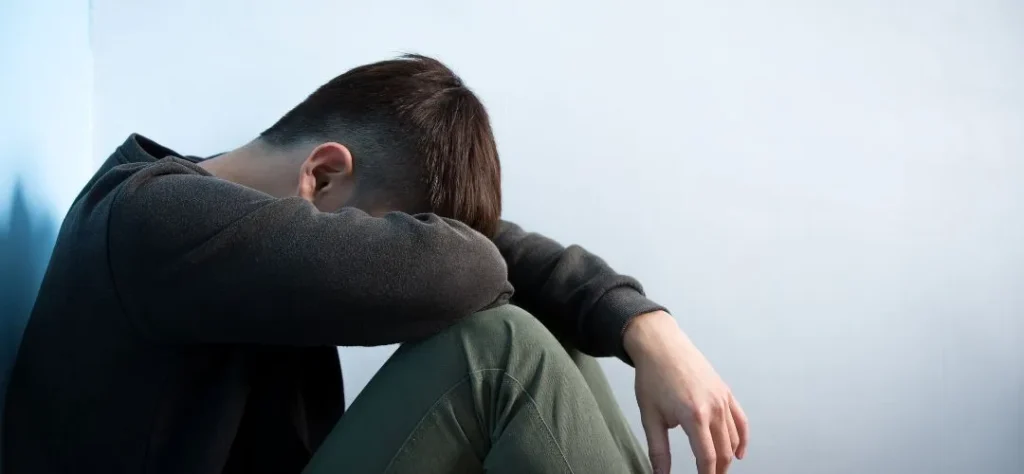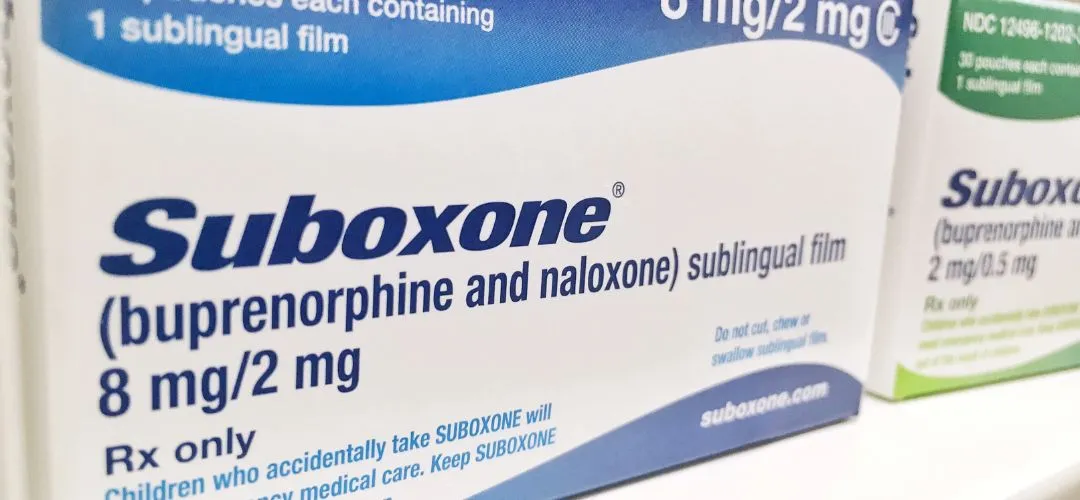Tapering Down and Stopping Suboxone to Reduce Withdrawals
In my experience recovering from ‘substance abuse’ isn’t always what you would expect. For me it was never ‘abuse,’ it was a lifestyle I was totally immersed in and dependent on. Following my years-long battle with opioid addiction, it was important to begin getting clean without all of the withdrawal symptoms.
When it comes to opioid use disorder, I haven’t met many addicts who haven’t had some type of medication-assisted treatment like Suboxone.
I was able to overcome my opioid addiction, but I started going down another dark path through my use of Suboxone. At first, it helped me stay away from opioids. After several months on the Suboxone program, I started to notice the signs that were there when I was using prescription opiates. I found myself trying to figure out how to get off Suboxone.
What To Know About the Cycles of Opioid Addiction
When you struggle with an addiction to opioids, you live in a continuous cycle of withdrawal symptoms and a desperation to avoid them. The physical symptoms of opioid withdrawal are so intense that you will do anything to avoid them. This is when many people turn to crime in order to finance their addiction. I was in that same boat.
Getting on a Suboxone program is a slippery slope. You are typically expected to taper off of the drug and eventually quit using it altogether. Unfortunately, a lot of addicts like myself just switch addictions and begin abusing Suboxone the same way they abuse opiates.
If you or someone you know find yourself in this situation, there is hope. Read more to see what I did to kick the Suboxone crutch through my time at South Shores Detox and Recovery.
How Opioid Withdrawal Affects Your Recovery

My struggle with drug abuse has been a lifelong situation. I began using drugs in middle school and was dabbling with multiple substances by the time I graduated from high school. When you enter the world of drug abuse, you often aren’t warned of the dangers.
Sure, we’ve all heard about how dangerous drugs are in health class and on TV PSAs, but you typically aren’t made aware of exactly why they are dangerous. All they tell you in school and on those PSAs are that drugs are bad for you and could potentially kill you. They don’t talk about the day to day realities of being an addict.
How Do Most People Become Addicted To Opioids?
When prescribed normally, opioids are intended to treat chronic pain. Many people get prescriptions for these drugs following major surgeries or physical injuries. A lot of individuals who become addicted to opioids started out this way. You don’t intend on becoming an addict, it just sort of happens. You may begin to enjoy the physical and mental effects of the drug, and you continue using it well after you should.
For me, it was a car crash and the medications given to me set things off. It was like a missing piece of my soul that suddenly felt warm and full when the pain pills kicked in.
And by the time I began misusing my prescription medication like Dilaudid, Percocet, and Oxycodone, I was also abusing other drugs like cocaine and meth. I enjoyed the downer effect of opioids, and it didn’t take long for opioids to become my drug of choice. When you first start using these kinds of drugs, the high is intense and as addicting as any other high.
Taking Suboxone To Combat Opioid Addiction
I first learned of Suboxone through other addicts I knew who were trying to get clean. Suboxone is one of the most common forms of any opioid treatment program. Suboxone is known as an opioid antagonist. What that means is that it blocks the effects of opioids. If you are taking Suboxone and then use any form of opiate, the ingredients in Suboxone block the effects.
I found out much later that, according to the Substance Abuse and Mental Health Services Administration (SAMHSA), Suboxone has become one of the most popular forms of what is known as medication-assisted treatment (or MAT).
The main ingredients in Suboxone are called Buprenorphine and Naloxone, which both act as a partial opioid agonist. The main point of Suboxone is to reduce opioid cravings while also reducing withdrawal symptoms. It makes taking opioids obsolete because you know you won’t feel any of the effects.
Still, if you have been on the streets you know a lot of people only use Suboxone to stave off being dopesick until they can get their next ‘blues‘ or bag of fetty.
Many people who are on the Suboxone program are subject to a tapering schedule. You start out with a higher dose and then are given less and less until you are weened off of it. When you become physically addicted to any drug, it’s nearly impossible to stop cold turkey. This tapering schedule helps fight off any withdrawals.
How Suboxone Can Help (Or Hurt)
For so many addicts, drugs like Suboxone are a lifesaver. I’ve met plenty of people in recovery who achieved long-term recovery through being on the Suboxone program. Unfortunately, when it comes to addiction recovery, there is never a one hundred percent success rate. Because Suboxone is a drug, there are going to be people who abuse it. I was one of those people.
Suboxone can be abused just as much as any opioid. I know people whose drug of choice is still Suboxone even years after they began using it. Because many Suboxone programs are strict about their tapering schedules, many people have to seek it out on the black market, much like they would any other drug.
I would also ignore the rules at my outpatient substance abuse treatment program and get high on tar or whatever I could find, then ask to be put back on Suboxone, a trick they figured out pretty quickly.
How Suboxone Withdrawal Symptoms Affect You

Once you become addicted to Suboxone, the withdrawal can be very similar to opioid withdrawal. The Suboxone withdrawal timeline usually lasts anywhere from two weeks to a month. It all depends on your level of addiction and tolerance. Within the first three days, the physical withdrawal symptoms are the most severe.
Within a week, common withdrawal symptoms include head and muscle aches, mood swings, and insomnia. Depression and anxiety often occur within two weeks to a month. The withdrawal symptoms of Suboxone are very similar to opioid withdrawals. Severe withdrawal symptoms often lead people to relapse.
Be Cautious With Suboxone Treatment
Just like any type of recovery, there is a level of caution one must be aware of. There is always a risk of relapse, but when you are taking other substances in order to come off another one, there is a heightened risk of exchanging addictions. With any drug that creates a physical dependence, there is a mental game that needs to be played.
Suboxone programs are generally very strict and have the same requirements as most forms of addiction treatment. Support groups and individual therapy sessions are usually strongly encouraged. The psychological symptoms of drug addiction are there no matter what you are addicted to. If you have a good head on your shoulders, you can steer clear of falling into any potential traps.
What To Know About Medication Assisted Treatment
When I first got on the Suboxone program, I thought I was in the clear. After simply switching addictions, I felt hopeless. I entered South Shores Detox and Recovery in an attempt to get a hold of my Suboxone and opioid addiction and finally put my substance misuse behind me. After establishing a comprehensive treatment plan, I was finally able to curb my constant use of Suboxone along with other opioids and clear my body and mind of substance abuse.
I had more eyes on me, which helped keep me in check. I stuck to my treatment plan and once I began tapering off Suboxone, I went to more and more group therapy sessions in order to prevent myself from acquiring Suboxone illicitly. I began focusing more on my mental health and why I became an addict in the first place. I quit making excuses and finally began taking more personal responsibility for my actions.
Preventing Relapse is Not an Exact Science

Throughout anyone’s recovery process, there are going to be times when you feel tested. Having treatment goals can be helpful in preventing any missteps. You hear the term “one day at a time” a lot in recovery programs, but that truly is the most simple way to put it.
It would help if you weren’t looking past the day and time that you are in. Once you begin to look beyond today, it’s possible that you can set unrealistic expectations.
There is no magic answer or cure for overcoming addiction. It is a process that is ongoing. No matter what treatment program you enter, there is a lot of self-work that needs to be done. If you aren’t ready to hold yourself accountable, you open the door for all of the potential problems that lead to relapse.
Reach Out for Support and Come Off Subs at South Shores
It can be tiring to be constantly battling your own thoughts, but it can be made easier if you have the right tools at your disposal. Reaching out to a treatment center such as South Shores Detox and Recovery will help ensure that you have the right team in place to help fight for your sobriety.
I can say for a fact that making the call to South Shores was the best call I ever made. Why not give them a chance and make the confidential call to see if they can help you too?


Recent Comments